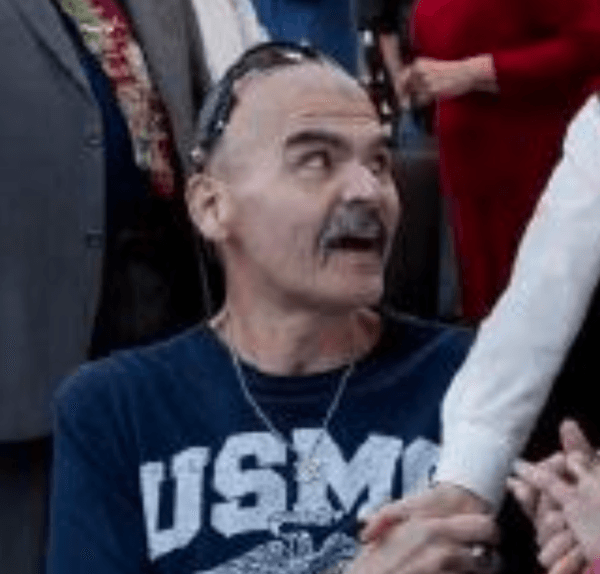For Immediate Release – June 6, 2022
SAN ANTONIO, TEXAS— Today, the Department of Justice filed an appeal seeking to avoid governmental responsibility for maintaining the nation’s Firearm Background Check System after President Biden pledges gun safety action in the wake of another mass shooting in Uvalde, Texas. The DOJ seeks to overturn a federal legal decision that found the Air Force caused the worst mass shooting in Texas history in a Sutherland Springs church by failing to follow the Brady Handgun Violence Prevention Act; it also comes shortly after the Department of Justice proudly announced its settlements of two nearly identical legal cases.
In response to the recent Uvalde school shooting, President Biden said, “I am sick and tired of it. We have to act. And don’t tell me we can’t have an impact on this carnage.” This appeal is surprising given that candidate Biden takes credit for passing the Brady Bill in 1993. And what’s more, candidate Biden also promised to ensure that the Justice Department will “effectively enforce our existing gun laws.” Despite this rhetoric, the Department of Justice filed an appeal of a Federal Judge’s ruling that the government has a responsibility to comply with existing gun laws designed to prevent criminals from obtaining guns.
The case revealed a systemic problem within the Air Force and other government agencies of not supplying criminal history to the National Instant Criminal Background Check System (NICS). The NICS system is designed to prevent criminals from acquiring firearms. In the appealed opinion, Federal Judge Xavier Rodriguez wrote, “In undertaking to create and manage a national background check system, the government assumed a duty under the common law to operate the NICS with reasonable care.” He further quoted in the opinion, “. . . [T]he “only reason” Kelley [the mass shooter] was able to acquire the firearms used in the shooting was the Air Force’s failure to submit his criminal history.”
The appeal was filed even though bipartisan members of the Government have previously agreed that the Air Force was responsible for the shooting. Senator Cruz stated in 2017 at a Senate Judiciary Committee Hearing, “It was illegal for this shooter to have a firearm. . . The reason [the shooter] had a firearm is because the federal government screwed up.”
The then Secretary of the Air Force, Heather Wilson, told Congress, “It was clear very early that [the shooter’s] criminal history was not reported and it should have been. … Our review has determined that the breakdown in reporting was not limited to this case, and it was not limited to this detachment at the Air Force Base.” She further noted that the Air Force had been cited for widespread systematic failures to report. An Air Force Press release stated that it had reviewed 47,129 files and identified 6,978 files with no criminal history reporting. However, the trial revealed a much more pervasive problem. For example, one investigative division of the Air Force alone failed to submit over 7,300 individuals to the FBI.

In relation to the Sutherland Springs shooting, Senator Cornyn shared in 2017: “The background check system has failed miserably. … Under Existing laws, [The Shooting] should have been prevented.”

A Department of Defense Inspector General investigation of the shooting concluded the Air Force could have prevented Kelley from legally buying a weapon and committing the mass shooting, had its investigators followed proper protocol and established a criminal history record (indexing) for Kelley based on his criminal arrest and subsequent courts-martial conviction.
The Department of Justice recently entered into settlements in other cases brought under similar legal theories stemming from the mass shootings in Parkland and Charleston. The average amounts awarded to the Texas victims were considerably smaller than the settlements the government agreed to pay to victims in other cases. In the Charleston Church Shooting individuals who witnessed the shooting received $5M in settlement, while the judge awarded an average of just $1.6M to those in the Sutherland Springs Church Shooting.
Victim Gunny Macias had this to say, “In the Marine Corps, we were taught by our government to never, ever leave a man behind. The government’s choice to appeal makes me feel like our Sutherland Springs community has been left behind.”
Jamal Alsaffar had this to say. “Another mass shooting has come and gone, the next one won’t be far off, and this Administration chooses to attack and resist enforcement of existing laws that prevent mass shootings. When will something change?”
The Senate Judiciary Committee is set to hold a hearing on gun violence on June 15, 2022.
All media inquiries can be sent to lead attorney for the Sutherland Springs families, Jamal Alsaffar (jalsaffar@nationaltriallaw.com), Whitehurst Harkness Brees Cheng Alsaffar Higginbotham & Jacob PLLC.


